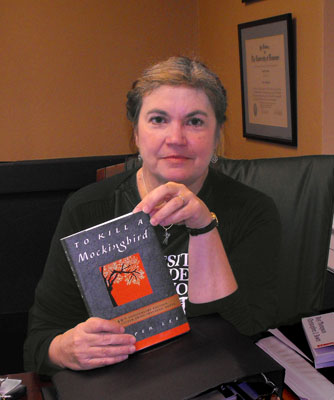Dr. Emily D. Edwards
Professor

To Kill a Mockingbird by Harper Lee
I read To Kill a Mockingbird when I was about ten years old (a few years older than Scout, the book’s narrator) and living in my hometown of Florence, Alabama. Although the events of this novel take place in the years after the Great Depression, when I read the book decades later, attitudes hadn’t changed substantially in Alabama, even in an Alabama several counties north of Monroeville, where Harper Lee was born. Reading this book, I considered for the first time that good people could accept conditions they knew to be wrong simply because they were customary. It takes an extraordinary person to attempt to change situations and ways of thinking that the rest of his world accepts as normal. I didn’t see the film until several years after it had been produced, but the movie only reinforced that this was an important story. The lessons the story teaches (that it is virtuous to oppose unjust social codes, to question gender roles, to respect others regardless of race and class, and to honor uncorrupted innocence) are ones I believe will remain fundamental and universal even into the next millennium.